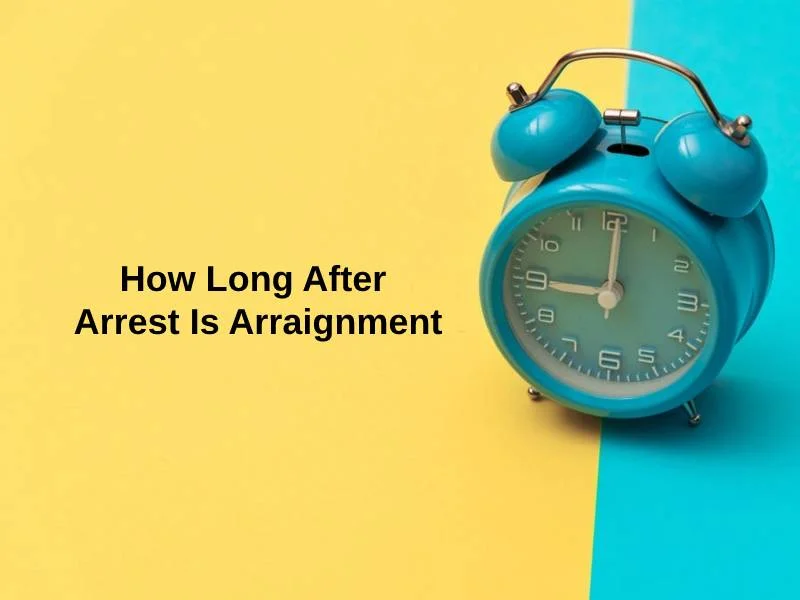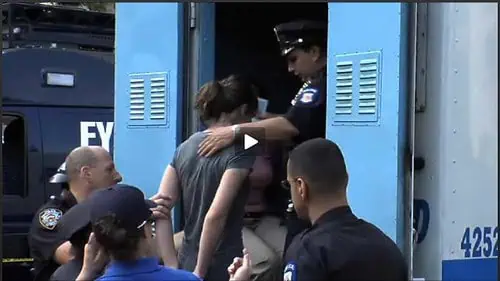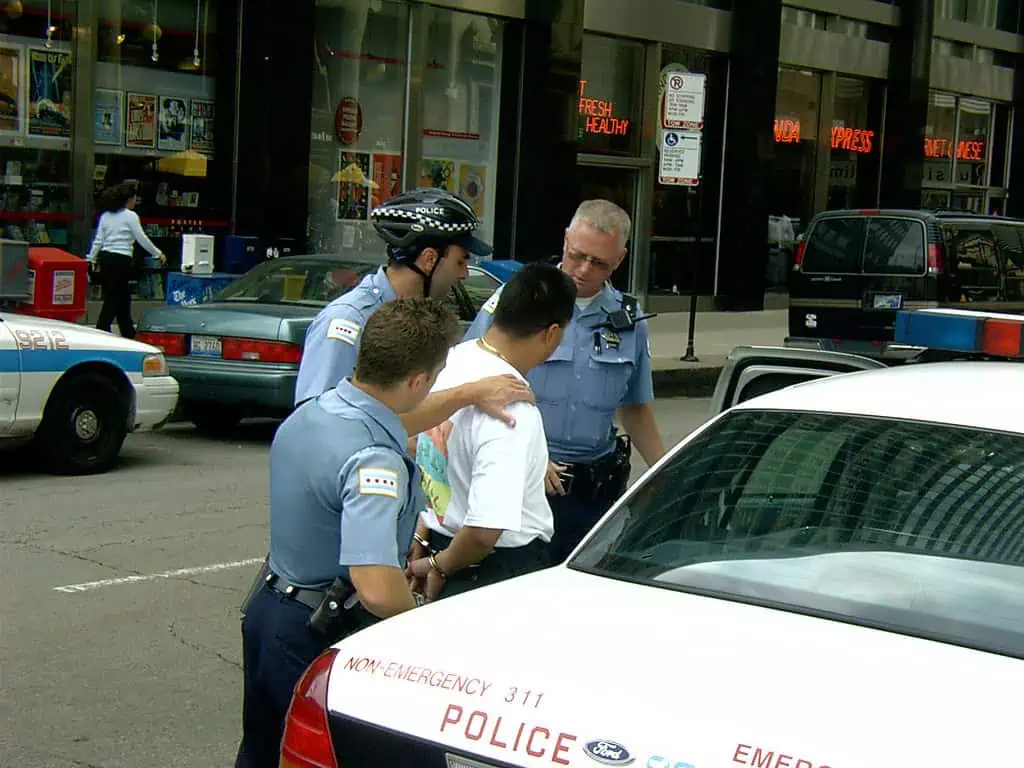Exact Answer: Within 48 hours
An arrest happens when the police or other figures of legal authority apprehend a suspect and proceed to take them into custody. However, some places permit citizens to apprehend and arrest someone, provided that they can justify their actions with proper evidence. Places like Wales and England have this law in place.
The arraignment is the initial court hearing that comes after an arrest. During this hearing, the defendant is advised about their charges and constitutional rights, by the court.
These are just two parts in the long process of the indictment. This process, which starts from arrest and ends in the sentencing of the crime, can even take up to months or even years.

How Long After Arrest Is Arraignment?
| Status of suspect | Time for arraignment after arrest |
| In custody | Within 48 hours |
| Bailed out/issued a citation | Up to many weeks |
If the suspect has been suspected of a crime or has been seen committing the crime, only then can they be arrested by someone who has the power and authority to perform arrests. The arrest ends when the suspect is unable to walk away freely from the law officer who is making the arrest. It may involve physical forcefulness from both parties, as the police officer may be taking the suspect against their will.
Arraignments take place within 48 hours of being arrested. This rule is applied only if the suspect is taken into custody and is in jail. If the suspect has been bailed out or has been issued a citation, then it can up to several weeks for the arraignment to occur.

Essentially, the defendant (previously known as the suspect) submits their plea, whether they’re not guilty, guilty, or no contest. In addition, the bail status is discussed, and the schedules and dates of future hearings are decided. In addition, the defendant will be advised about their Constitutional rights, and the court will present the particular criminal charges that were filed against the defendant. With respect to the bail status, the court will decide whether to change, apply, or absolve your bail, or release them all together.
Moreover, the court asks the defendant if they wish to hire their own attorney to represent them or if they want to work with a public defender. There may even be another arraignment depending on whether the charges have been changed or not in any way.
Why Does It Take That Long For Arraignment To Happen After Arrest?
It takes 48 hours for the arraignment to happen after the arrest. In this duration, many things happen that are vital to the arraignment. During this 48-hour gap, the defendant searches for and hires a defense lawyer who is experienced. However, this is only common for those who can actually afford to hire a lawyer.
In addition, 48 hours is the shortest amount of time that is provided to protect the defendant. This time period results in a speedy arraignment, that could potentially help out the defendant. During this time, the prosecutors, along with the police must gather a lot of evidence to support the charges against the defendant. The prosecutors have to browse through and review reports, that were submitted by the law officers. These reports contain summaries of the officers’ investigations. The police must have probable cause, in order to detain a suspect in jail for 48 hours.

After an arraignment, there is a phase of discovery, where the prosecutors and defenders learn about the opposition party’s case. This two-way information exchange helps get to the bottom of the case. After this is plea bargaining, where the prosecution and defendant agree to settle the case, without having to go to trial. After this is a preliminary hearing, for those with felony charges and plead not guilty. Next is the trial, where the evidence is presented by both the prosecution and the defense side. Then the jury, after much discussion, decides if the defendant is guilty or not. Depending on this, the court then delivers the sentencing.
Conclusion
To conclude, the criminal case is a long and complex process that starts with an investigation, followed by an arrest, then being charged with the crimes, then the arraignment, then the discovery of either side of the case, followed by plea bargaining, then a preliminary hearing, after which the trials are held, then the court delivers the sentencing. After receiving a sentence, the defendant may even file for an appeal if necessary.
Between the arrest and the arraignment, there is a 48-hour gap if the suspect is in custody, as this time allows for the preparation and gathering of evidence. But if the suspect is bailed out, then the arraignment may even take up to weeks to happen.